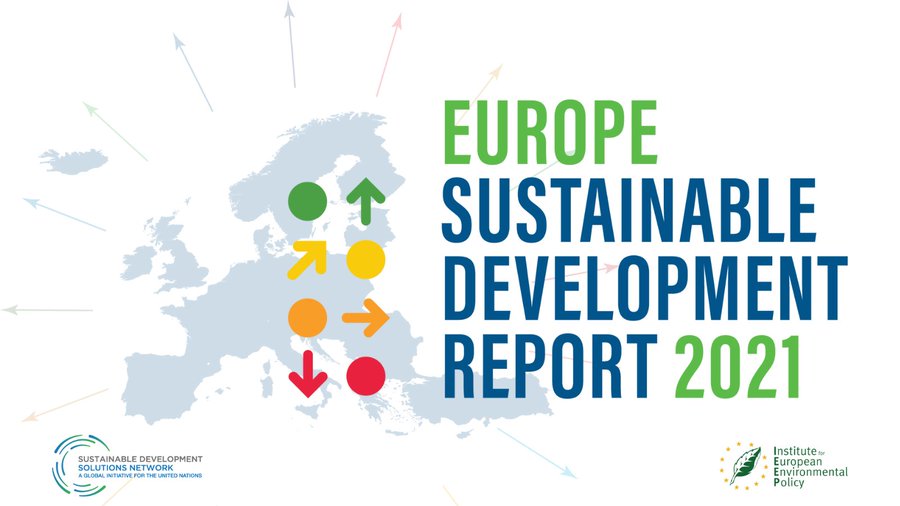Finland tops European comparison of sustainable development

According to the Europe Sustainable Development Report (2021) published on Tuesday 14 December, Finland is at the top of the list when comparing progress on sustainable development in European countries. Earlier this year, Finland ranked first in a global comparison made using a narrower set of data. Finland is joined in the top three by Sweden and Denmark.
For the first time since the 2030 Agenda for Sustainable Development was adopted, the overall SDG index score in Europe did not increase this year; in fact, it saw a slight decline. This was due to the COVID-19 pandemic. The pandemic has had a lesser impact on Finland than on most other EU countries.
According to Sami Pirkkala, Secretary General of the Finnish National Commission on Sustainable Development, the overall decline in sustainable development in Europe is worrying. “In Europe and elsewhere in the world, the health and socio-economic effects of the COVID-19 pandemic have been disproportionally felt by vulnerable groups and populations, such as poor people, women and migrants. European countries must continue their resolute efforts to curb the pandemic. All countries need to ensure that their national recovery and resilience plans are implemented efficiently and in full,” Pirkkala says.
According to the report, Europe’s greatest sustainable development challenges are in the areas of sustainable diets and agriculture, climate and biodiversity, and the convergence of living standards across its countries and regions. The report stresses that even though Europe is a global leader in sustainable development, it generates notable negative impacts, or spillovers, in other parts of the world. For example, the report finds that imports of clothing, textiles and leather products into the EU are linked to 375 fatal workplace accidents and 21,000 non-fatal accidents abroad every year. Consumption habits in the EU also contribute to environmental degradation outside Europe by causing deforestation and biodiversity loss.
The ‘leave no one behind’ index score included in the report describes disparities such as gender inequality, income gaps and unequal access to services and opportunities within countries in the EU. Finland is also one of the top countries on the ‘leave no one behind’ index, together with the other Nordic countries. In fact, the report finds that promoting sustainable development and reducing inequalities are mutually reinforcing goals.
According to Pirkkala, the sustainable development challenges facing the EU and its Member States cannot be solved through individual, targeted measures; they require changes at the systemic level. “It is essential to understand the systemic nature of sustainability challenges. Over the past year, the Finnish National Commission on Sustainable Development has identified six major systemic challenges for Finland and drawn up a plan for how Finnish society will respond to these challenges. Among other themes, the Commission has explored what should be done to reform Finland’s energy and food systems. The plan will be completed in February, and it will guide the work of the Finnish National Commission on Sustainable Development in the coming years,” Pirkkala says.
The Sustainable Development Solutions Network (UNSDSN) and the Institute for European Environmental Policy (IIIEP) have been producing Sustainable Development Reports and country comparisons detailing progress on implementing the SDGs since 2015. The Sustainable Development Report is drawn up using peer-reviewed and statistically audited methodology, including country profiles for the EU Member States and its candidate countries.
Data visualisation: https://eu-dashboards.sdgindex.org



